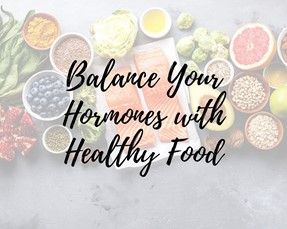Hormones, we hear the term frequently, but what are they and what do they do? Well, here is a simplified explanation – hormones are chemical substances that act like messenger molecules, they are made in one part of the body, and travel to other parts where they give messages and help control how cells and organs do their work. While there are many hormones involved, we will discuss 3 in this blog. Leptin, Ghrelin, and Insulin. Read more from Healthline HERE.
Leptin is your helper, and signals “satiety”. Leptin is produced in your fat cells, and tells the brain you have enough fat stored in case you need it stranded without food! Obese individuals may have as much as 4 times higher level of leptin, but it is not working as it should, the message is not getting to the brain. This is referred to as leptin resistance. Elevated insulin levels and inflammation in the hypothalamus may cause leptin resistance.
Ghrelin increases your appetite. Ghrelin is produced in the gut. Essentially, it is secreted when your stomach is empty and heads to the hypothalamus through the bloodstream. Quickly after beginning a diet, your ghrelin levels go up and this continues as you continue to diet, possibly as much as 25-50% in a 3-6-month timeframe. (Rudy Mawer, 2016) This may explain why it is hard to maintain a quick weight loss. Increasing your muscle mass is important to counter an increase in Ghrelin.
Insulin regulates the intake of blood sugar by the cells (muscle) for energy or storage. It also regulates fat storage by telling the fat cells to store fat AND preventing the breakdown of fat cells to use as energy. Both blood sugar and insulin levels go up when a person is insulin resistant, and insulin resistance is fairly common. Addressing insulin resistance is crucial for your health. The how has many commonalities with healthy eating in general. There are proponents that encourage cutting carbohydrates and others that encourage reducing fat, specifically saturated fat…but most professionals agree that cutting refined and processed foods while encouraging whole foods and increasing fruits and vegetables is beneficial.
Following are 6 nutritional habits to balance your hormones:
- Eat Enough Protein at Every Meal- one can get essential amino acids through dietary protein. This protein influences the release of ghrelin and leptin, the two hormones that control appetite and food intake. Ghrelin levels are decreased through eating proteins, which activates your inner “gremlin” and tells you that you are hungry. It increases the production of leptin, which tells you that you are full and signals you to stop eating, this can help with portion control.
- Avoid Sugar and Refined Carbs- doing this can help to optimize hormone function by reducing insulin levels, especially in overweight and obese individuals, which can help lower risk of metabolic diseases such as diabetes or prediabetes.
- Consume Healthy Fats- intaking high-quality natural fats can help to reduce insulin resistance and appetite as well as increase insulin sensitivity. You can get these fats from avocado, nuts, and seeds. Eat Fatty Fish or Seeds and Nuts often to obtain omega-3 fatty acids which have anti-inflammatory properties, while also working to reduce levels of the stress hormones of cortisol and adrenaline. It has also been found to show reduction in insulin levels and insulin resistance as well.
- Avoid artificial or non-nutritive sweeteners. If you haven’t heard, artificial sweeteners are strongly associated with obesity. While they do not have calories, it is thought they may increase the secretion of insulin and cause changes in the gut microbiome. (Robbins, 2020)
- Stay Away from Sugary Beverages- beverages with sugar in them could be linked to insulin resistance, and higher insulin levels. Drinking these beverages does not trigger leptin hormones so it can lead to excessive caloric intake compared to eating solid foods.
- Consume a High-Fiber Diet- fiber has been shown to increase insulin sensitivity and stimulation of leptin. Soluble fibers are better but insoluble fibers can still help to increase the levels of these hormones.
Other healthy behaviors to balance your hormones.
Avoid Overeating and Undereating– overeating can increase insulin levels and decrease insulin sensitivity while undereating can increase cortisol levels, both of these can lead to weight gain.
Drink Green Tea– this can increase insulin sensitivity and lower insulin levels. Green tea is also considered one of the healthiest beverages around and has many health benefits.
Get Consistent, High-Quality Sleep– there appears to be a relationship between poor sleep and hormonal imbalances such as insulin, cortisol, leptin, ghrelin, and growth hormones. Quality is more important than quantity in this situation. Improve your bedtime routine by putting down electronics at least two hours before bedtime and
Learn to Manage Stress– chronic stress can cause cortisol and adrenaline levels to be continuously elevated. Cortisol is the “stress hormone” and constantly being elevated can cause stress eating and obesity while high adrenaline levels can lead to high blood pressure, increased heart rate, and anxiety. Lowering these levels can help in many ways, and you can enjoy activities such as yoga, meditation, or massages while managing your stress.
Exercise!- Of course we always suggest exercise to help your nutritional habits, your stress management and your sleep in addition to helping maintain a healthy weight.
There are many ways that your hormones can be affected by your diet and exercise, you don’t have to make every single change on the list at once. Try picking a few and working your way toward checking off most of the list and working your way toward living a healthier lifestyle.


